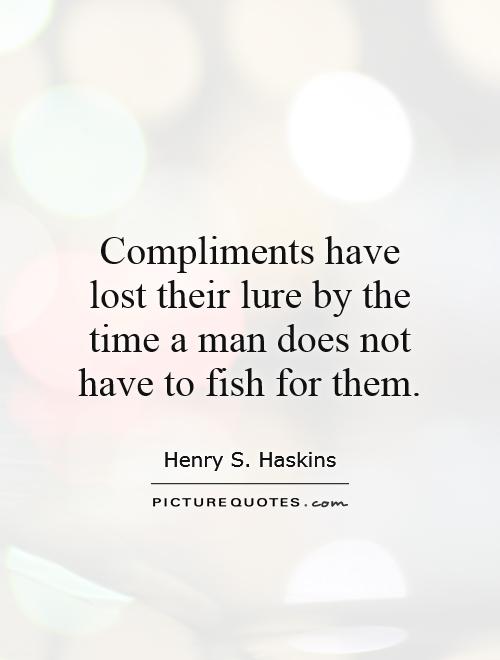Compliments have lost their lure by the time a man does not have to fish for them

Compliments have lost their lure by the time a man does not have to fish for them
Henry S. Haskins, a renowned American writer and philosopher, once said, “Compliments have lost their lure by the time a man does not have to fish for them.” This statement holds a profound truth about human nature and the way we perceive compliments.In today’s society, compliments have become a common currency in social interactions. People often give and receive compliments as a way to boost their self-esteem and build rapport with others. However, Haskins’ quote suggests that the value of compliments diminishes when they are easily obtained. When a man no longer has to fish for compliments, when they come to him effortlessly and abundantly, they lose their significance and impact.
This idea can be understood in the context of human psychology. When we receive compliments, especially when we have worked hard for them or when they come from someone we admire, they have a powerful effect on our self-esteem and sense of worth. However, when compliments are given freely and without much thought or effort, they can feel insincere and hollow. They may not have the same emotional impact or validation that we seek from genuine praise.
Furthermore, when compliments are constantly showered upon someone, they can become desensitized to them. They may start to take compliments for granted and not fully appreciate the positive feedback they receive. This can lead to a sense of entitlement and a lack of humility, as they come to expect praise without having to earn it.












 Friendship Quotes
Friendship Quotes Love Quotes
Love Quotes Life Quotes
Life Quotes Funny Quotes
Funny Quotes Motivational Quotes
Motivational Quotes Inspirational Quotes
Inspirational Quotes